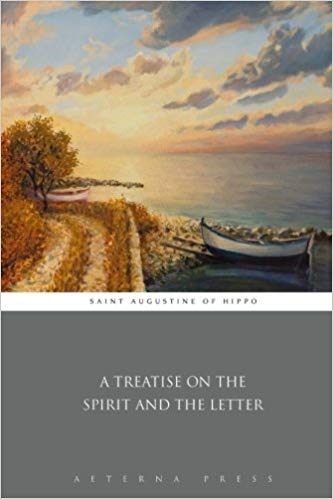A Brief “Bonus” Summary from Books At a Glance
By Todd Scacewater
You read the works, Marcellinus, that I recently wrote about the baptism of infants and the perfection of human righteousness. You were concerned that I wrote that it is possible for a person to be sinless, if with the aid of God’s power the will is not lacking, even though there does not seem to be one who has done so. You objected that it is absurd to believe something might be, even though we have no example of it, simply because God could do it. But many things could take place if God willed it, although we have no example of it happening, such as a camel passing through the eye of a needle.
You might reply that other possible works are the works of God, not of man, whereas remaining sinless is the work of man. But a sinless life would involve both the human will and also the grace of God as a gift. It is God who produces in us the willing and the action (Phil 2:13). I say that nobody has or will live a sinless life—although if they did, I would not be upset by it—but that if they did so it would only be by God’s grace and will.
Concerning this grace and help, some say it consists only in the teaching and the law revealed in Scripture. But we say that the Holy Spirit living within us, pouring out love into us, is what God’s help consists of. Free choice is capable only of sinning. Moreover, the law does not give life or help us avoid sin, but “the letter kills, but the Spirit gives life” (2 Cor 3:6). These words should not be understood to refer to literal versus spiritual interpretation, although it may apply to that. Rather, as Paul says elsewhere, sin kills us through the commandment (Rom 7:11), and we would not know desire if the law had not said “You shall not desire” (Rom 7:7). The law is good, but because of sin it only increases our evil desires by its prohibitions.
Let us consider the entire passage in which Paul says the letter kills, but the Spirit gives life. Paul speaks of the law that God gave when he says “the letter.” He writes clearly about this law in the letter to the Romans. “The law entered in so that sin might abound, but where sin abounded, there grace was even more abundant” (Rom 5:20). He noted that we should not sin in order that grace may abound, as some pervert the Scriptures. The law that entered in increased our sinfulness rather than lessened it, and it is only by his grace that we are healed: “where sin abounded, there grace was even more abundant” (Rom 5:20). He then continues to show that the Lord’s death and resurrection symbolized the end of our old life and sinfulness and our renewal unto righteousness (Rom 6:3–11). This great benefit did not come through the law, but through faith in Jesus Christ.
[To continue reading this summary, please see below....]The remainder of this article is premium content. Become a member to continue reading.
Already have an account? Sign In
